Photo credit: Philipp Wenning
One does not simply listen to a Jamila & The Other Heroes song, one is engaged by the words under the psychedelic haze of instrumental fusion. Fronted by singer Jamila Al-Yousef this psychedelic band is derived from the middle east and other European territories. The result is a funked-out guitar infused production that will have you playing along with your air guitar. With so much destruction happening all over the world with a particular focus on Palestinian affairs, the band have shared their latest politically-charged single ‘BORDER SYNDROME احلام بلا حدود’ via Springstoff / slowtrane. Under their undeniable groove, the band are sharing messages of empowerment and educating the politically ignorant youth one song at a time.
Watch Jamila & The Other Heroes: Live at Sisyphos Berlin
We asked the band to elaborate on their political views below.
Stream /Download: ‘BORDER SYNDROME احلام بلا حدود’
Tell us about your highlights for the year
We have recorded the double single ‘YABA يابا ‘ and ‘BORDER SYNDROME احلام بلا حدود ‘, both relating to Jamila’s Palestinian Diaspora narratives. In November we plan to tour in the Middle East, so far Egypt, Jordan and VAE are on the plan. Until then we are looking forward to some open-air performances in Germany; like playing at the incredible Berlin club Sisyphos.
This single tackles multiple topics of discrimination, war and fear in the middle east. Were you taught about this devastation growing up, or was it something that was hidden away from your knowledge?
Yes, from my early childhood I grew up learning about my family’s narratives and about the current situation in Palestine as well as the Middle East. I remember my father always carried this little radio where ever he walked to hear the latest news. Later it became a TV, today it is an Ipad. When he came home from work the first thing he would do was turn on the TV to watch the news, until he went to sleep. Sometimes I accompanied him for workshops and presentations he did on the situation in Palestine, I was only eleven years old but I would make him the PowerPoint presentations. This way I learned a lot of facts like the number of settlements, checkpoints, the lengths of the wall, UN resolutions, etc. During my school time and also later at university I used every chance to research and dive deeper into topics relating to Palestine. For a history exam, I wrote a one hundred page book on Palestine and the international responsibility. And I defended it in front of five hundred students. After my school time I worked on several cultural projects in the Westbank and amongst other things I wrote several essays, bachelor and master thesis about topics such as the Freedom Theatre, the Normalization Discourse, and the German Foreign Cultural Policy in Palestine. In that time I also founded the Arab* Underground program that brought hundreds of artists, activists and academics to the Fusion Festival as well as the Berlin club scene to share their diverse perspectives on the Middle East and North Africa.
If you could paint a picture with of your sound, what would it look like?
An orange pyramid flying above a turquoise-purple sea towards a red desert under a golden sky.
What are the 5 albums and artists that have influenced you the most?
– Dina El Wededi: Turning Back
– El Morraba3: Taraf al Khait
– Khruangbin: The Universe Smiles upon You
– 30/70: Elevate
– Space Echo: Analog Africa No. 20
– Pink Floyd: Dark Side Of The Moon
What other artists do you really like at the moment and why?
Bab L’Bluz – love their take on fusing Gnawa and psychedelic/progressive rock, and that they have a strong frontwoman singing and playing the guembri.
How did you get to your first gig ?
Jamila: I have been booking and curating festivals in Berlin clubs long before I also started my band project. My good network within sub alternative club structures in Berlin made it possible to play the very first gig at the Neukölln clubs KELLER, ARTISTNIA and later in bigger clubs such as MENSCH MEIER and KATER BLAU. These were our first destinations in the Berlin club scene. Thanks to my connections in the Middle East and North Africa we are already in our first year as a band and have recieved an invitation to the feminist Chouftouhonna Festival in Tunis.
Tell us one interesting fact about yourself that no-one would expect.
Jamila: I’m an antiracism and empowerment trainer.
What do you consider your biggest achievement so far?
Connecting people through art and music in small and bigger contexts. Having played at beautiful festivals like Fusion. Also, receiving great management/publishing with Springstoff. And featuring on editorial playlists on Spotify, Itunes and Anghami are also beautiful achievements.
We find these lyrics intriguing, but not sure what it means: “I park my dignity with the waves of the red sea”. Can you please elaborate on the meaning behind these words for us?
In ‘BORDER SYNDROME احلام بلا حدود’ I sing: “I park my dignity with the waves of the Red Sea, while they strip search my soul and interrogate my extrovert me.” This means I feel like I have to put my dignity in the safe arms of the sea, so that the interrogators cannot take it away from me with their humiliating practices like looking through private photos, asking me intimate questions, etc. After the long wait and interrogation procedure, I get out of it and this is what the next lyrics relate to: “Hours later I find my dignity in the sound of the sea”. This means I didn’t want to give the border patrols my dignity, so I parked it safely with the sea until the procedure is done. I pick it up from the sea afterwards. The sound of the sea is so calming for me, so homely. I feel safe when I am in it.
Famous last words?
Music is political.
Follow Jamila & The Other Heroes:
Website – Facebook – Twitter – Soundcloud – Youtube – Instagram – Spotify








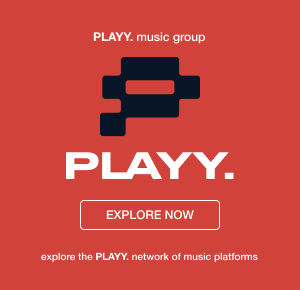
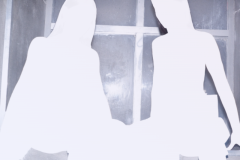
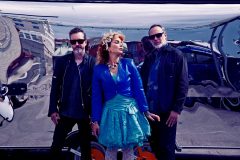
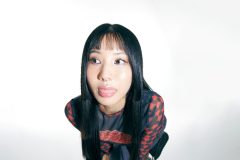
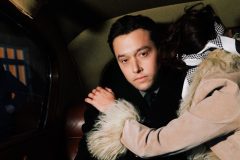

Social Media